I watched this film entirely because it’s Ernst Lubitsch’s oldest surviving film. I’ve enjoyed a number of his talkies, and was excited to see some of his early work, and while this isn’t on par with his later efforts, it includes some clever moments.
The story is fun, and you may find it familiar. We meet our protagonist, played by director Lubitsch, who lives with his wife and mother-in-law. One night, he leaves dinner early to participate in a game of chess. He’s in a chess club, and he is playing in the final match of the club’s tournament. His opponent is extremely slow, at one point taking hours to make a single move. Eventually, our hero wins the game, but at the cost of his marriage, for his mother-in-law has locked him out. He spends the night asleep on the steps of his own home, and is shooed away for good in the morning; the mother-in-law has convinced her daughter to leave the marriage.
Now living in some sort of residential hotel, the man sees a help wanted ad his mother-in-law has run in the paper. She’s looking for a new butler, a fact which inspires him to concoct a plan. He writes a suicide note, then goes to his barber, where he’s given a wig. Apparently, the wig is disguise enough, and he’s hired by his wife and mother-in-law who fail to recognize him. None of the staff do either, and he seamlessly integrates himself into the household. If you think this sounds a lot like the plot of Mrs. Doubtfire, you aren’t alone. That was my thought, too.
After thwarting the amorous attempts of a suitor towards his presumed-widow, he is asked to escort the mother-in-law on a shopping excursion. On the car ride home, she makes a pass at him. As he’s about to kiss her, he removes the wig. Aghast, she begs him never to tell anyone about their near-tryst, and he promises on the condition that she move out and never come back. She agrees, and he sends her packing. To the delight of the staff of servants, and his wife, he has returned home.
The film was considered lost until an almost complete copy was found in Slovenia in 1994. Happily it can again be watched, though to my knowledge it’s not available on DVD or Blu-ray, so I watched on YouTube.
Next I’m watching Hell’s Hinges [1916], directed by Charles Swickard, William S. Hart and Clifford Smith.




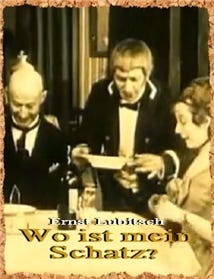


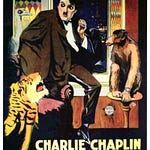
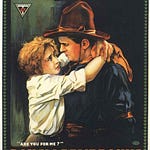
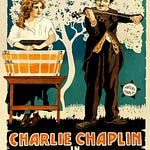




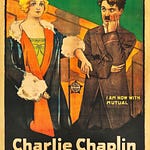
Share this post